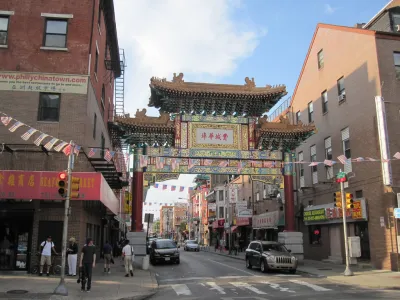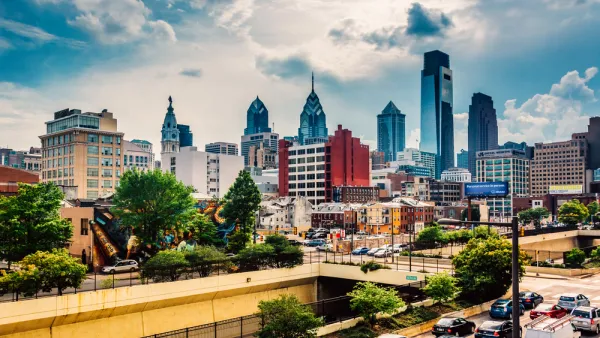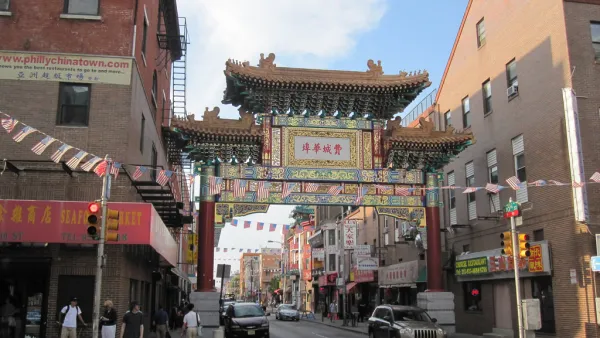As the historic neighborhood experiences increased redevelopment around the new Rail Park, community activists are working to ensure older residents and businesses aren't displaced in the process.

Philadelphia's Chinatown is changing—but residents hope the development boom in the area won't drive out long-term Chinese-owned businesses in the area, reports Sophia Schmidt.
A 2020 study prepared by the consulting firms Strategic Economics and Urban Partners for the Chinatown CDC found that since Friends of the Rail Park — the polished nonprofit that continues to raise money to make the 3-mile park vision a reality — formed in 2013, sale prices of apartment buildings near the first phase of the park grew faster than in the rest of the city. The authors estimated up to 16% of this increase may be attributable to the Rail Park, and projected the amenity could generate more than $2 million in additional real estate tax revenue for the city per year.
Yue Wu, neighborhood planning and project manager at the Philadelphia Chinatown Development Corporation, acknowledges the economic and cultural diversity currently present in the neighborhood, but expresses fears that it won't last as costs rise and older residents are displaced. According to the article, "Friends of the Rail Park has tried to counter the cultural displacement that can come with gentrification by co-hosting events like Mahjong nights, plant swaps, elder hour — geared toward low-income and low-English language proficiency seniors — said Friends of the Rail Park Director Rebecca Cordes Chan." The organization is also launching a planning process that will evaluate the equity impacts of new development and develop ways to prevent potential displacement. Ideas include a land trust, local procurement, and 'value capture strategies.'
Planetizen has previously covered one such strategy, tax increment financing (TIF) districts, a mechanism which, as CityLab explained, "has become the most popular incentive tool for economic development in the United States as the federal government has decreased its urban development spending." Philadelphia already boasts several examples of TIFs, but "None of the TIF districts created to date in Philadelphia have funded community benefits, according to the 2020 Strategic Economics report."
FULL STORY: ‘Who’s Benefiting?’ As Chinatown Gentrifies, Rail Park Begins Equitable Development Plan

Analysis: Cybertruck Fatality Rate Far Exceeds That of Ford Pinto
The Tesla Cybertruck was recalled seven times last year.

National Parks Layoffs Will Cause Communities to Lose Billions
Thousands of essential park workers were laid off this week, just before the busy spring break season.

Retro-silient?: America’s First “Eco-burb,” The Woodlands Turns 50
A master-planned community north of Houston offers lessons on green infrastructure and resilient design, but falls short of its founder’s lofty affordability and walkability goals.

Test News Post 1
This is a summary

Analysis: Cybertruck Fatality Rate Far Exceeds That of Ford Pinto
The Tesla Cybertruck was recalled seven times last year.

Test News Headline 46
Test for the image on the front page.
Urban Design for Planners 1: Software Tools
This six-course series explores essential urban design concepts using open source software and equips planners with the tools they need to participate fully in the urban design process.
Planning for Universal Design
Learn the tools for implementing Universal Design in planning regulations.
EMC Planning Group, Inc.
Planetizen
Planetizen
Mpact (formerly Rail~Volution)
Great Falls Development Authority, Inc.
HUDs Office of Policy Development and Research
NYU Wagner Graduate School of Public Service




























